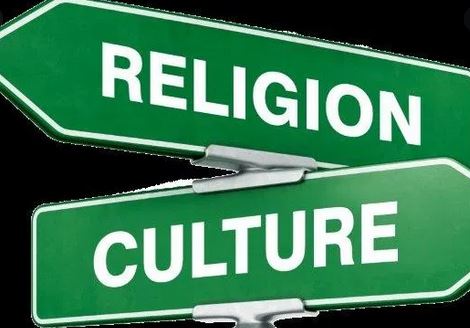Culture and religion play very important roles in our daily life, most of our social life and behavior are guided by culture and religion, but most of us are not aware of the difference between these two ideas. Especially in the present environment, it is very important not only for students but for every one of us to understand the difference between culture and religion so that we cannot be provoked by any external or internal forces to act against our people and country. Today we will discuss what is the difference between religion and culture.
As per the definition given in the dictionary, culture can be defined as the ideas, customs, arts, and social behavior of a particular people or society, so we can say that culture reflects the collective idea and customs, whereas religion is defined as the belief in and worship of superhuman controlling power. If you observe both definitions you can notice that culture talks about the existing practices in society and religion covers the faith and belief of a person. culture is the collective identity of the people living in a region or country and religion is the personal identity of a person. Most of the time culture is the outcome of religion and with the passage of time and the assimilation of new ideas, this religious ritual turns into a cultural ritual.
Let’s understand the difference between culture and religion with an example- India is a country with a lot of variation and this is the reason India is called a land of cultural diversity. Each region has its own culture, Ramleela is a special dramatic folk that is performed in north India during the celebration of Navratras, in the western part a special dance called Garba is performed during Navratras, in the eastern part different Pandals showcase the life of lord Durga during Navratras and in the southern region, Navratras are celebrated by offering prayer to Lord Laxmi, Durga and Saraswati. Now many people call Navratras a religious festival because it involves the worship of Goddess Durga, who is a Hindu deity, they also claim that the dance form and pooja are very much part of Hindu rituals. While considering these things we must also understand the fact that at some point in time cultural practices emerged from the religion itself, what makes cultural practices different from religious practices is that culture shows the wider nature and identity of the region and Navratra celebrations do reflect the nature of a region. Similarly, other festivals, ideas, and art forms may reflect the rituals related to a particular community or religion but they also form the larger identity of a region, and these practices must be promoted and preserved, these must be transferred to coming generations in the same manner as we received them from our ancestors.
We should also consider the fact that India has the majority of its population is Hindu and Islam appeared in India during the 13th and 14th centuries, so most of the cultural festivals will be dominated by Hindu practices itself, but what must be considered is whether a particular celebration represents the wider nature of the region or not. Many places in India have Muslim culture and Hindus and Muslims collectively celebrate the culture in these regions. Culture is the social or regional identity of a person it should not be mixed with religion. We must accept culture as a treasure of human celebration and experience which must be shared with all the people around.
What we need is efforts in the direction to preserve our culture so that our coming generations can also have a distinct identity on the cultural map of the world like we have today, without this identity India will be a land mass with the highest population in the world but without a soul. Protect your culture, it’s your identity. Celebration of culture is not a violation of religious rights.
